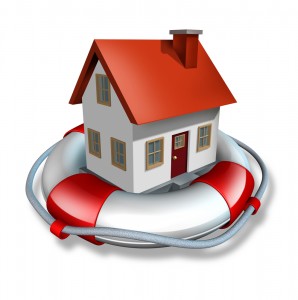 Home insurance is a vital component of any home owner’s finances. However, many people still dismiss the benefits of such a policy, mainly due to the cost and the admin work involved when making a claim. As minor damages are usually dealt with and paid by the home owner independently to avoid the tedious process of making a claim, many assume that home insurance is unnecessary. However, this couldn’t be further away from the truth.
Home insurance is a vital component of any home owner’s finances. However, many people still dismiss the benefits of such a policy, mainly due to the cost and the admin work involved when making a claim. As minor damages are usually dealt with and paid by the home owner independently to avoid the tedious process of making a claim, many assume that home insurance is unnecessary. However, this couldn’t be further away from the truth.
Buying a property is already a huge investment. Couple that with the cost involved in maintaining it and you are faced with an incredibly expensive responsibility. Home insurance is designed to financially stabilise home owners and support them in the event of theft or damage. Finding a suitable and affordable home insurance quote is easier than you think. Due to the large number of providers, prices vary significantly from company to company.
Price comparison sites are particularly popular amongst insurance seekers across the country. Although these search engines are quick and easy to use, it is not advisable to accept a deal without visiting the insurance company directly first. Minor changes within the policy may occur which may mean that the cover is not specific or relevant for the home owner.
There are, however, other ways to ensure that you get a good deal:
1. Increase Security
Installing security and safety systems in and around the home will help bring premiums down. Insurance providers recognise the measures a property owner has taken to ensure they are both safe and protected. The ‘behaviours’ will be rewarded and thus monthly payments will be lowered.
2. Join Groups
Joining community groups can seriously boost the chances of receiving cheaper home insurance. Neighbourhood Watch programs are seen by insurers as a positive behavior that needs to be rewarded.
3. Review Contents
Expensive and sentimental belongings will all need to be covered by insurance to protect them against theft or damage. However, many people fail to inform insurers of changes in circumstance that can change the amount of monthly repayments. If a piece of jewellery, electronic device or appliance is no longer used or owned then providers need to be aware, otherwise they will continue to charge for those contents.
4. Increase the Deductible
The deductible in insurance is the amount of money that is needed to be paid before a claim can be made. The general theory is that the higher the deductible the lower the monthly payments. For those who decide to pay for minor repair work with their own earnings, this is ideal. In some cases, households can save up to $200 a year.
5. Combining Policies
Contacting an existing provider of insurance is a sure fire way of improving the likelihood of a discount. Most companies will reward existing customers with a substantial reduction on their policy if they combine two or more types of insurance with them. For this reason, existing providers should be the first port of call when gathering home insurance quotes.
This is a guest post by Nicola Winters on behalf of LV, a leading provider of home insurance.
Tags: financial planning, Home, Home Insurance, insurance, Insurance policies, Protection
Recent Comments